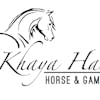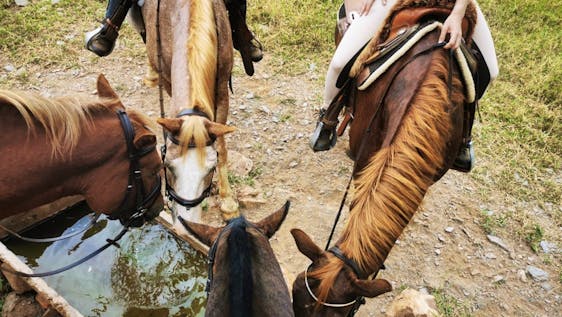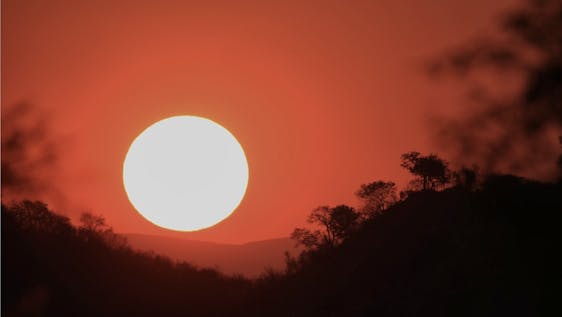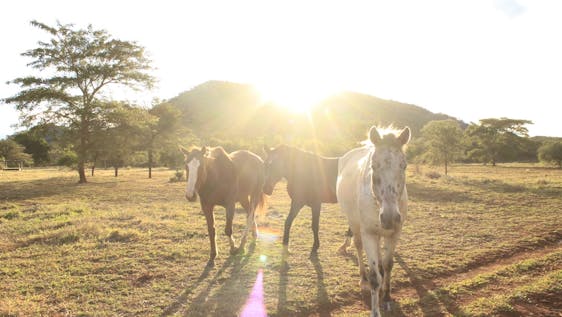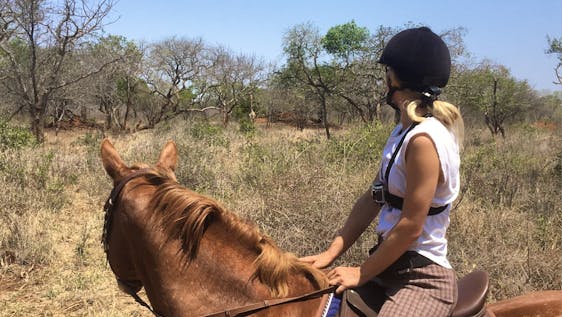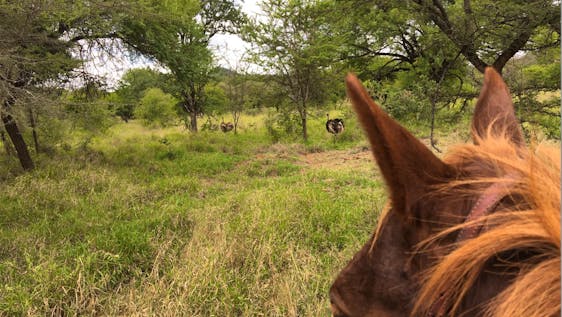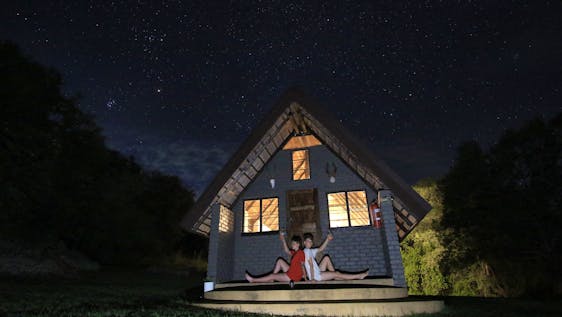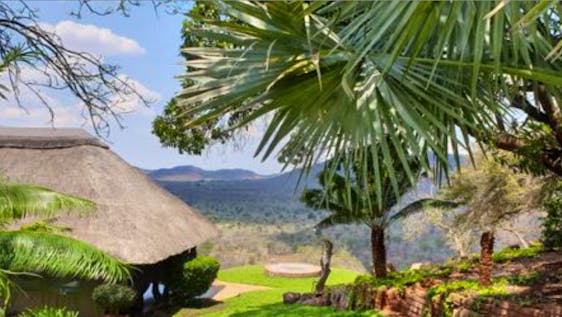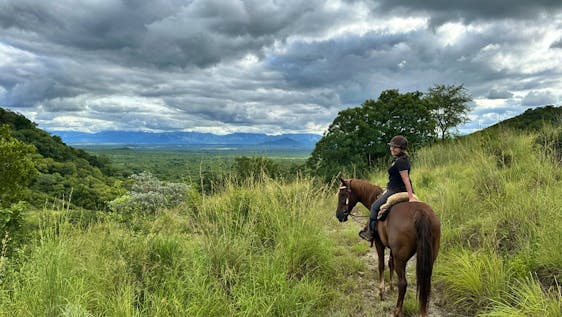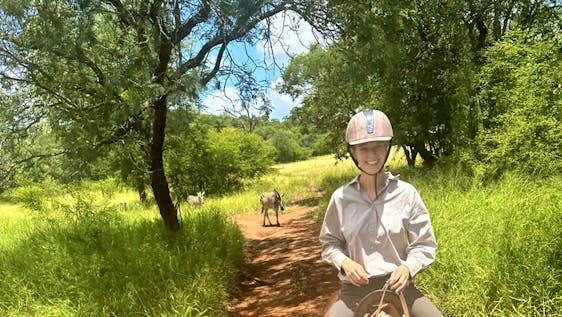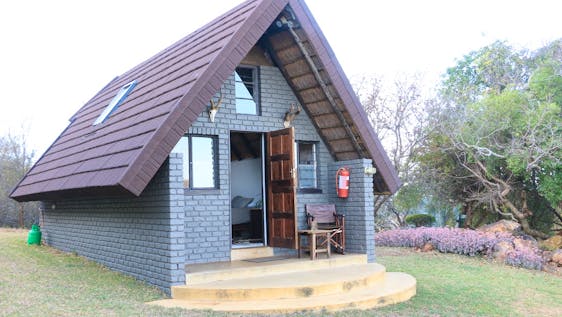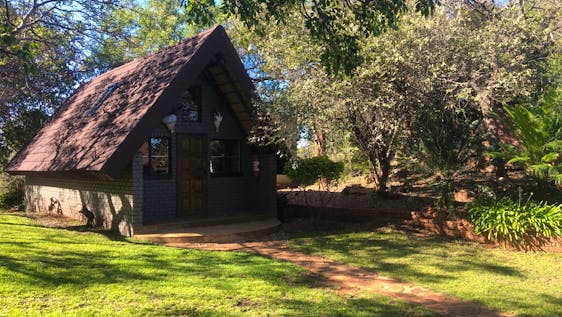Are you looking for the unique African bush experience on a horse farm?
Do you want to make a difference in the lives of neglected and abused rescue horses? You´ve got experience in working / rehabilitating horses from the ground and from the saddle? Do you want to be part of their rehabilitation process and in return experience South Africas Flora and Fauna from their backs on long relaxing trails? Do you want to do farm work on horseback and join our presence program on our neighboring farms?
Then Khaya Hanci is the perfect spot for you!
We have been living in South Africa for several years now and our passion for horses is not leaving us behind. The circumstances of too many horses in South Africa was a calling for us to contribute towards the horses well-being.
We had to realize, that both, the private and business sector within horses creates a lot of neglected, abused and misunterstood horses. The animals are used for various purposes and are intended to generate profits. Whether in commercial tournament sports or in tourism. The financial success has an immense influence on the keeping of the animals. If the animals no longer generate this success, alternatives must be found.
• We observe something similar in the private sector: Especially in Limpopo, where living on a farm is common. Many families then buy horses as an entertainment for the children. At the same time, most farmers do not have an understanding of horsemanship or any other knowledge about a horses needs. At the end of the day, this often leads to misunderstandings, conflict between human and horse and ends in abuse. This endless number of horses living on farms is then no longer of interest in the owners eyes. They either end up on slaughter trucks or we find them tied up in stables, roaming free on farms, mostly in bad conditions.
Once the horses arrive at Khaya Hanci we immediately provide a stress-free environment. Many of our 4-legged friends spend the first few months with the herd, enjoy 24 hours of freedom and get used to their new home. We then gradually build up contact with people, individually adapted to the horse.
An example from working with Hanuta.
According to the information that reached us, Hanuta was already being used as a riding horse, but had hardly been touched for some time. The pre-owner told us he can not be touched and refuses contact with human. This person wanted to ride horses and lost interest in Hanuta, showing the described behaviour.
Shortly before he and another horse came to us, we also received the news that they had not been fed properly for days. Apparently the person in charge did not fulfill their duty. So that's how Hanuta arrived at the farm underweight. Together with his buddy Mars (thoroughbred), he was allowed to graze in peace, gather strength and slowly approaching the herd. For him, the first contact with us humans consisted of treats and without any requirements.
It quickly became clear how anxious Hanuta is when dealing with people and how much insecurity is evident in his behavior. Thanks to his curiosity, he soon made progress and we were able to take the next steps. Touches on the head caused him great concern. Putting on a halter seemed almost impossible. But with patience and repetition, he was finally able to relax more and more with us human. Today, after 12 months, Hanuta appears as a curious, human-oriented horse, which faces new challenges and has learned to accept humans as trustworthy partners by his side. We are all very excited about the next steps.
We have found exactly the right spot for our work on our 450-hectare farm in Limpopo. Here we have the opportunity to take in horses and to offer them enough space for a horses needs. We believe that horses are in best condition when allowed to live in a herd.
Our herd consists of about 17 horses. If necessary, we have the opportunity to temporarily form small herds. On our farm, the horses have access to an endless amounts of grass, wide areas, shady places under trees and enough water at any time. For the rehabilitation training we work in the round pen and on the riding arena. For other interactions, we have a cleaning and washing area available, as well as the carefully designed tack room with individual equipment for each horse.
Our vision is to be able to offer individual horses rehabilitation in which they can rediscover their trust in people and live a stress-free and species-appropriate life. Each horse decides for itself on the extent and speed of that process. While some of them develop into true reliable partners in the field, we only work with others from the ground. The focus is always on the horse and its needs. In order to continue pursuing our vision, we need the support of motivated volunteers who want to combine the African bush and the passion for horses. If you share the passion for the well-being of horses and the African savannah, you will surely experience the time of your life. A calm and friendly manner is an advantage for everyone. If volunteers want to be integrated into horse rehabilitation, prior knowledge is required.
